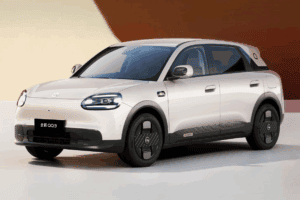Announcement comes on the back of EV sales dropping 22% in November

The German government Sunday faced a backlash after abruptly ending an electric car subsidy scheme in a blow to the already struggling automotive industry.
An “unfortunate situation”
The scheme is one of the casualties of a budget crisis caused by a shock constitutional court ruling in November that upended the government’s spending plans.
The economy ministry said Saturday that Sunday would be the last day prospective buyers could apply for the scheme, which paid out thousands of euros per customer to partially cover the cost of buying an electric car.
A spokesman for the ministry admitted it was an “unfortunate situation” for consumers who had been hoping to take advantage of the subsidy, but it had no choice “because there is no longer enough money available.”
ALSO READ: Brakes slammed on German EV sales as incentives end
Analyst Ferdinand Dudenhoeffer from the Center for Automotive Research warned the decision could have dramatic consequences.
“The competitiveness of (auto) manufacturers will now be severely damaged,” Dudenhoeffer told the Rheinische Post newspaper.
The Handelsblatt business daily had already warned that scrapping the scheme risked jeopardising Germany’s plans to get 15 million electric cars on the road by 2030.
“This goal was already considered extremely unrealistic. Now it seems completely illusory,” it wrote.
A total of around 10 billion euros has been paid out since 2016 under the scheme for around 2.1 million electric vehicles, according to the economy ministry.
Governmental blow
Germany’s flagship automotive industry has been struggling with the transition to electromobility due to a weak global economy and low levels of demand.
In addition, it is facing a serious challenge from homegrown rivals in China, one of its most important markets.
“The Chinese are massively expanding their car industry because they have customers. Our manufacturers no longer have any,” Dudenhoeffer said.
Germany’s highest court decided last month that the government had broken a constitutional debt rule when it transferred 60 billion euros earmarked for pandemic support to a climate fund.
The bombshell ruling blew a huge hole in spending plans and plunged Chancellor Olaf Scholz’s three-way coalition into turmoil.
After adopting an emergency budget for 2023, Scholz and his junior coalition partners battled for weeks before finally finding an agreement for 2024 on Wednesday.
NOW READ: Germany and EU sign deal keeping non-EVs beyond 2035
Support Local Journalism
Add The Citizen as a Preferred Source on Google and follow us on Google News to see more of our trusted reporting in Google News and Top Stories.






